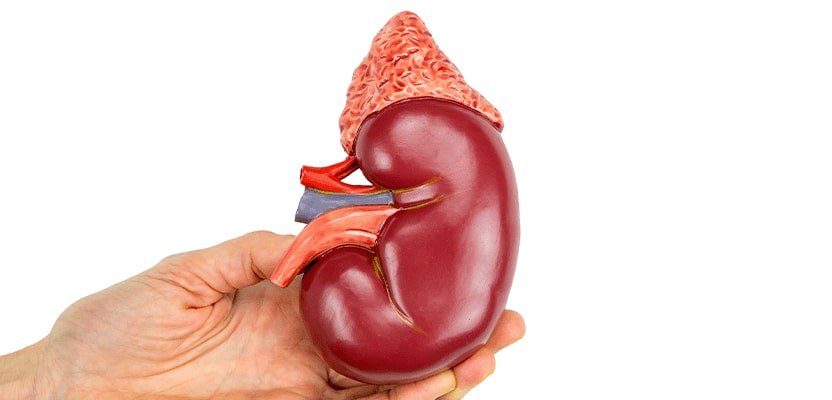+90 533 813 89 77
info@bookingforhealth.com

Functions of the Kidney and Kidney Diseases

What are the Functions of the Kidney?
The kidneys are two organs located in the abdominal cavity, just below the rib cage. Overall, the kidneys play a vital role in maintaining the health and balance of the body systems. One of the key functions of kidneys is to filter and remove waste products and excess fluids from the blood, helping to regulate blood pressure and electrolyte levels. Additionally, the kidneys are involved in the production of hormones that contribute to red blood cell production and bone health.
- Filtering the Blood: The kidneys filter the blood to remove waste products and excess fluids, which are then excreted in the urine.
- Regulating Blood Pressure: The kidneys produce hormones that help regulate blood pressure by controlling the amount of water and sodium in the body.
- Maintaining Electrolyte Balance: The kidneys help maintain the balance of the body’s electrolytes such as potassium and sodium.
- Producing Red Blood Cells: The kidneys produce a hormone called erythropoietin, which stimulates the production of red blood cells in the bone marrow.
- Activating Vitamin D: The kidneys convert vitamin D into its active form, which is necessary for the absorption of calcium from the digestive tract.
What are the Kidney Diseases?
Kidneys have very important tasks in terms of producing substances that contribute to the physiological functioning of the body, both in terms of the basic elements of the excretory system, blood circulation, and mineral balance. In line with these tasks, diseases as well as the functions of the kidneys vary.
- Acute Kidney Injury: This is a sudden loss of kidney function that can be caused by a variety of factors, such as dehydration, blood loss, or a severe infection. Acute kidney injury usually resolves with treatment, but it can lead to chronic kidney disease in severe cases.
- Kidney Stones: Kidney stones are hard deposits of calcium and other substances that can form in the kidneys. They can cause pain and difficulty urinating, and they may require treatment to remove them.
- Chronic Kidney Disease: This is a long-term condition in which the kidneys gradually lose their ability to function properly. Chronic kidney disease can be caused by a variety of factors, including high blood pressure, diabetes, and other diseases.
- Polycystic Kidney Disease: This is a genetic disorder that causes the development of numerous cysts (fluid-filled sacs) in the kidneys. It can cause the kidneys to become enlarged and can lead to kidney failure.
- Glomerulonephritis: This is a group of diseases that cause inflammation and damage to the filters in the kidneys (called glomeruli). It can lead to kidney failure if left untreated.
- Nephrotic Syndrome: This is a group of symptoms that occur when the kidneys are damaged and unable to properly filter proteins from the blood. It can lead to a buildup of excess fluid in the body and can cause swelling in the feet, ankles, and legs.
What are the Treatment Methods of Kidney Diseases?
Treatment of kidney disease may include medications, lifestyle changes, and, in severe cases, dialysis or kidney transplantation.
Medicines control high blood pressure, reduce protein loss and treat other underlying conditions that may contribute to kidney disease. Lifestyle changes may include following a special diet, exercising regularly, and stopping smoking to help improve kidney function.
Dialysis is a type of treatment that uses a special device to filter the blood and remove waste products and excess fluids when the kidneys can no longer function properly. This form of treatment is usually chosen when kidney function falls below 15 percent of normal.
Kidney transplantation is a surgical procedure in which a healthy kidney is transplanted into a person with kidney failure. It can provide a longer and better quality of life for people with severe kidney disease but is not always possible due to organ availability and other factors.
What Should be Considered for Kidney Health?
Several issues should be considered to protect the kidneys, which have an important role in the healthy functioning of the body, and to prevent possible kidney diseases.Drinking plenty of water and other fluids can help flush waste products from the kidneys and prevent kidney stones. Eating a diet that is low in salt, saturated and trans fats, and added sugars can help control blood pressure and prevent kidney damage. It is also important to get enough protein, but not too much, as high protein intake can strain the kidneys. Regular physical activity can help control blood pressure and improve overall health. Smoking increases the risk of kidney damage and kidney cancer. Therefore, avoiding smoking will benefit the health of the body.
If you have risk factors for kidney disease, such as diabetes or high blood pressure, you should be screened regularly to detect any problems early. If you have a medical condition that can affect the kidneys, such as diabetes or high blood pressure, it is important to take medicines as prescribed to protect the kidneys.
By following these steps, it is possible to help maintain healthy kidneys and reduce the risk of kidney disease.



